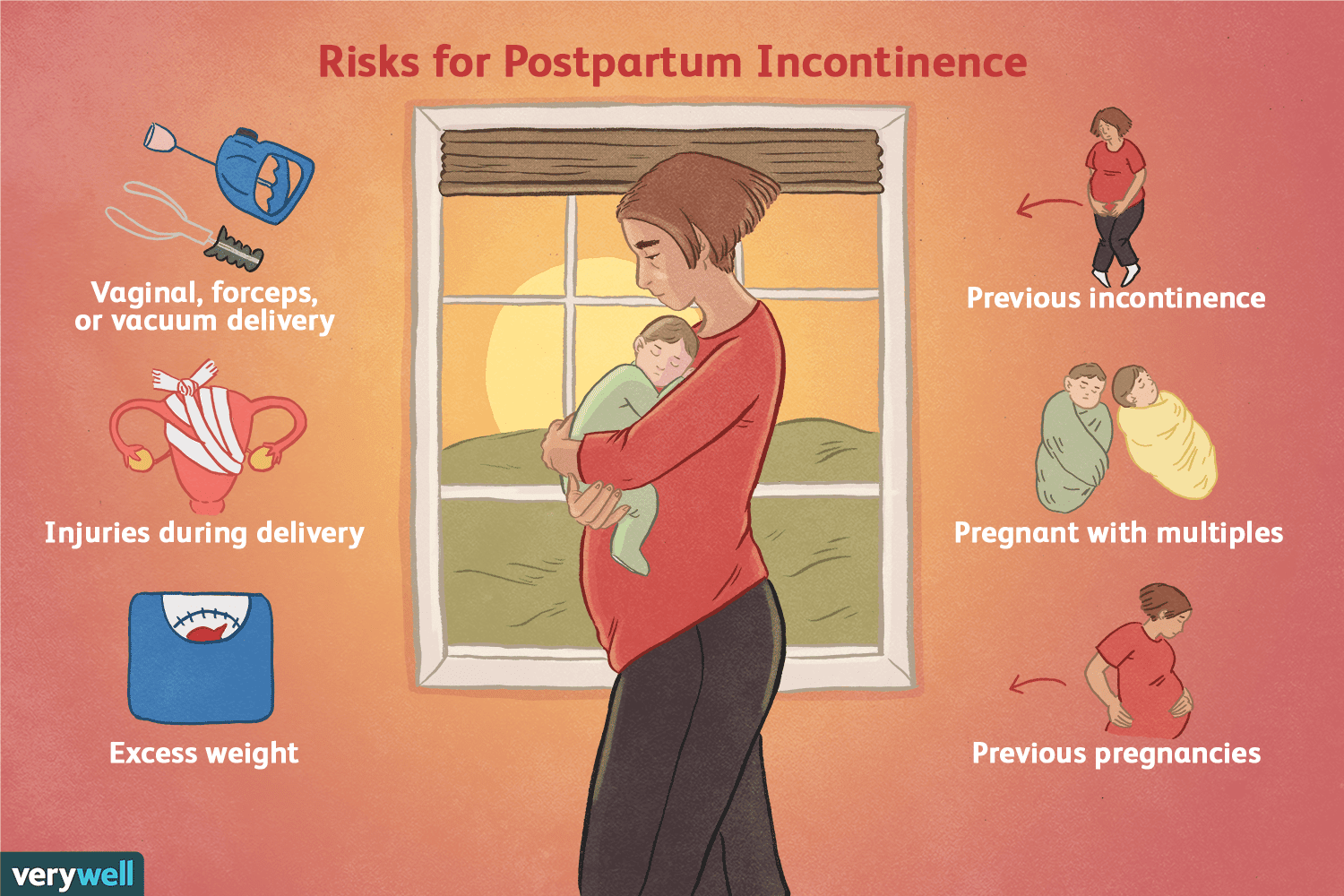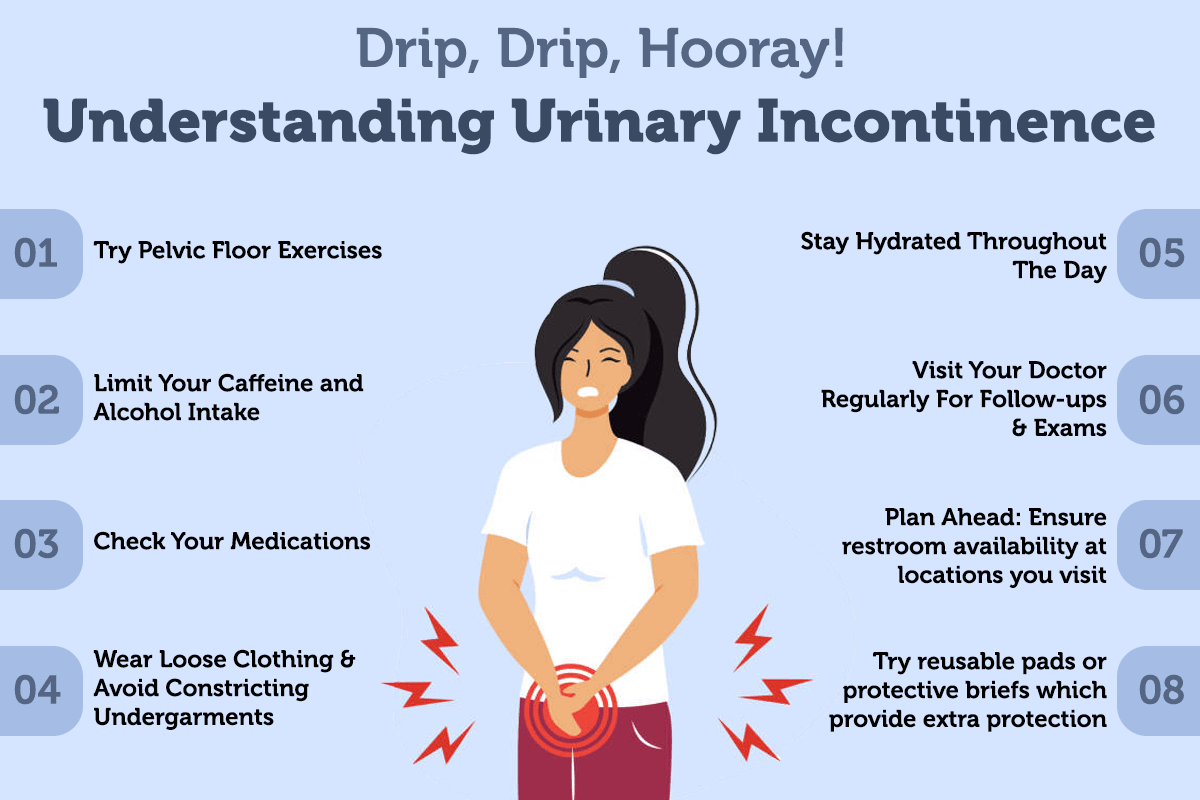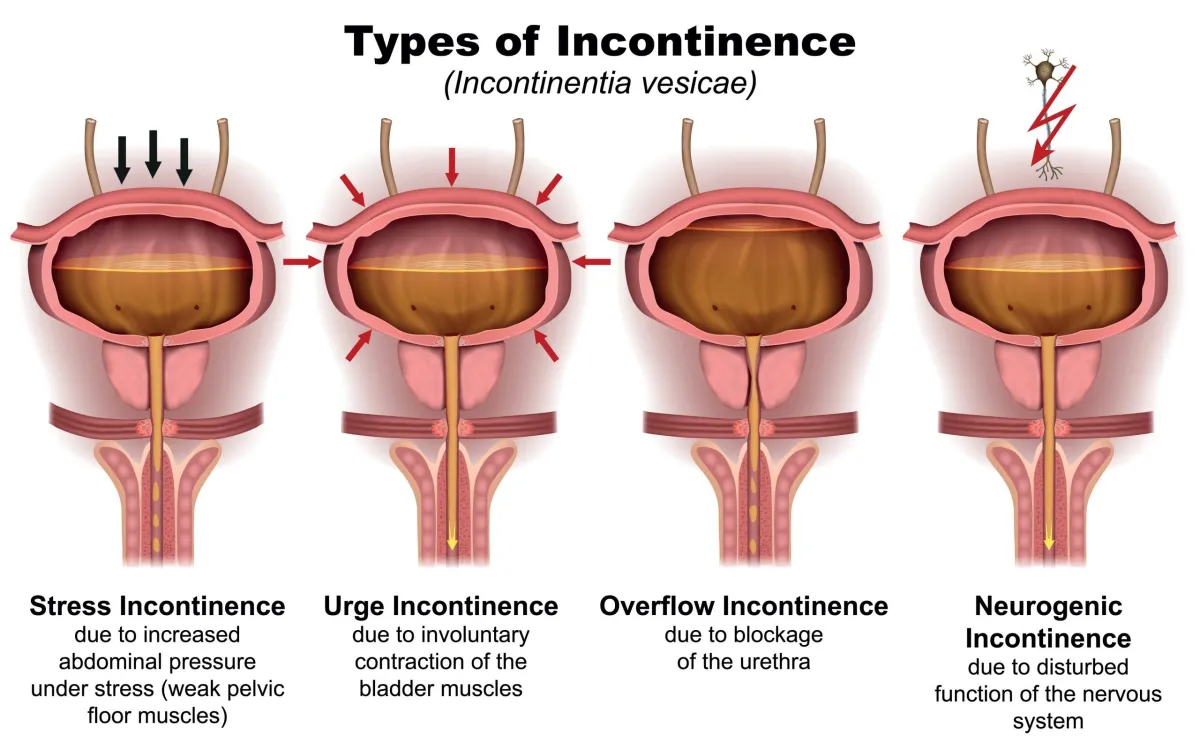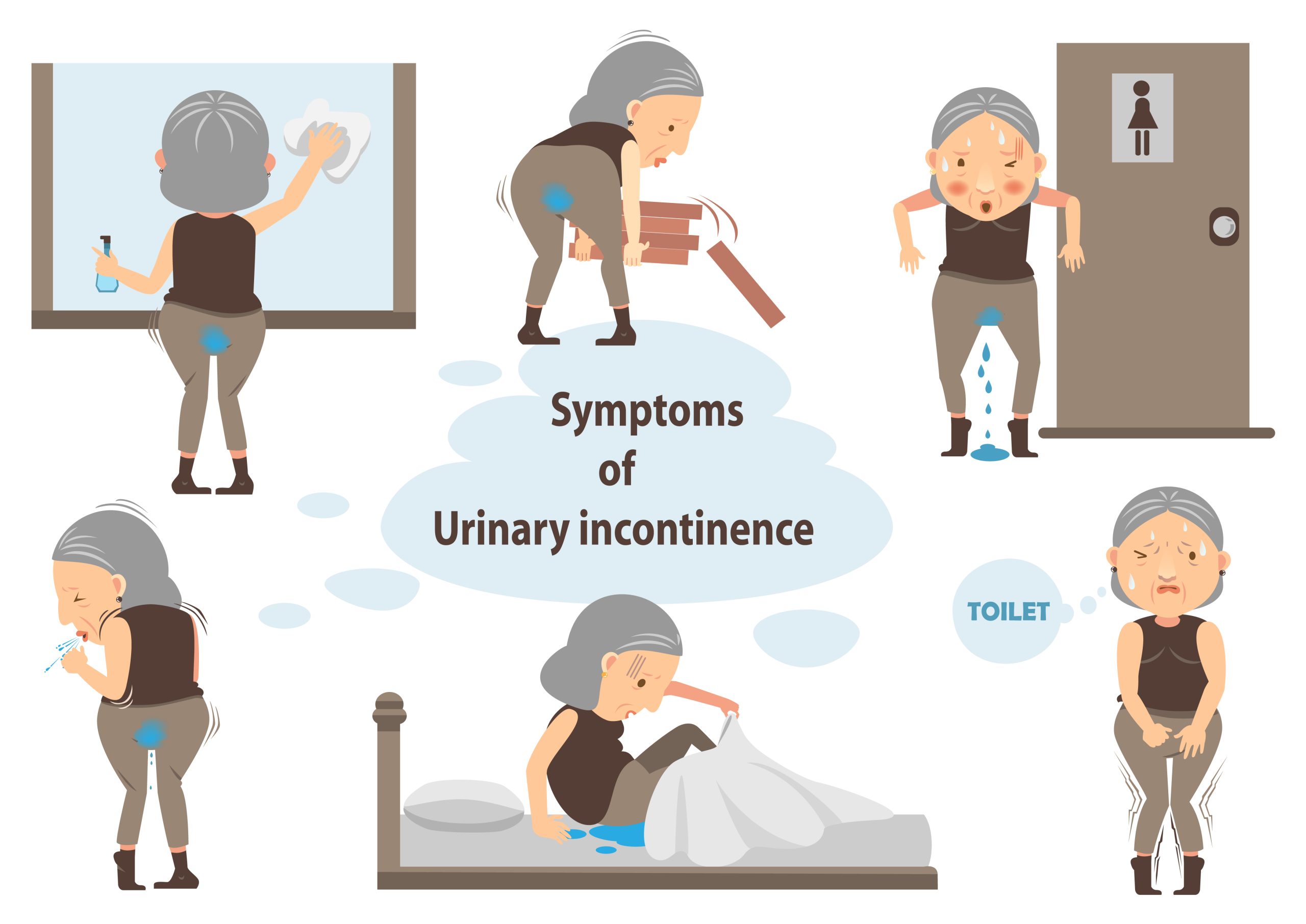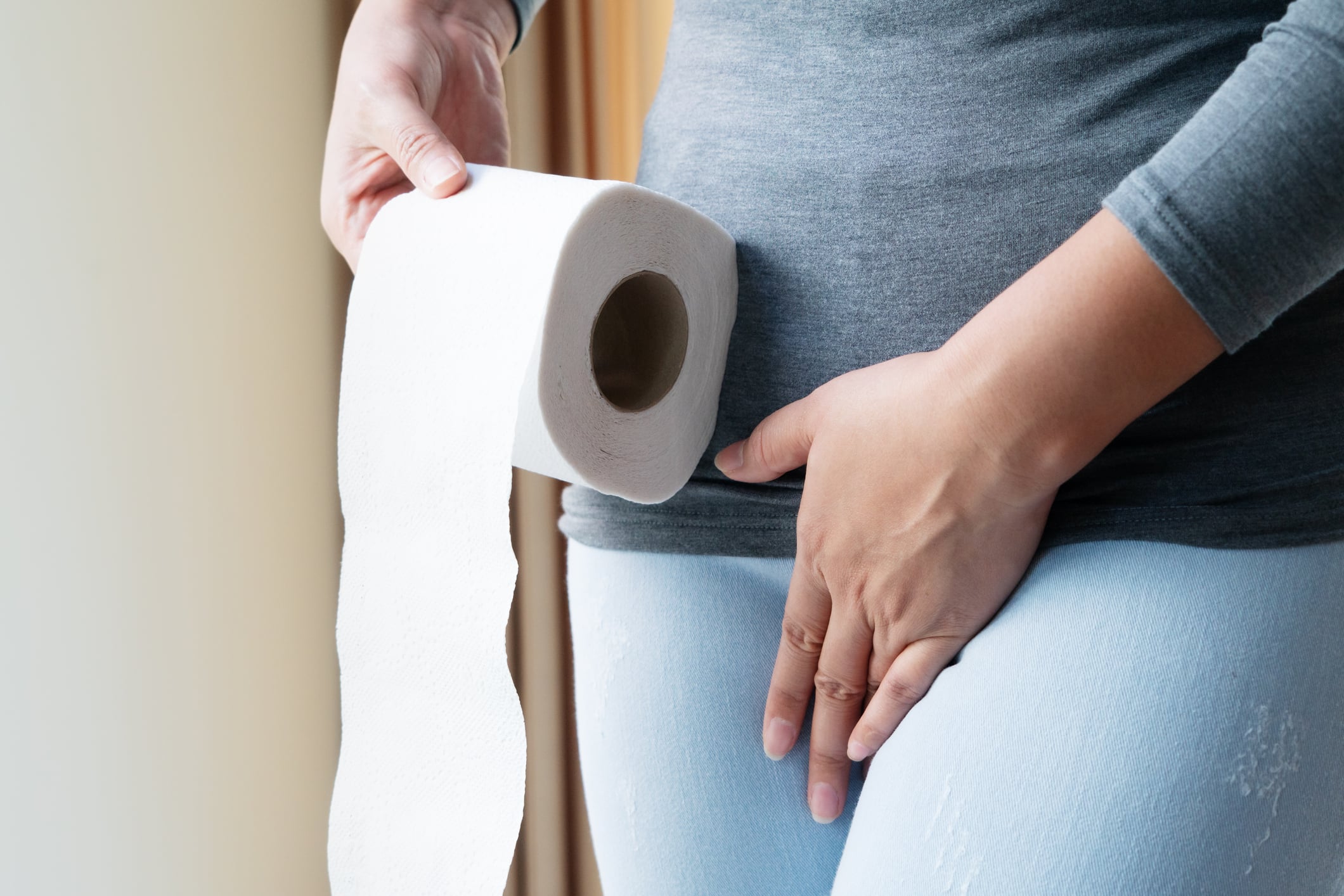
What is incontinence?
Incontinence ranges from having just a small leak of urine to completely losing control of your bladder or bowel.
More than 5 million Australians have some form of incontinence, from young children to older people living in care. More than 6 in 10 women and about 3 in every 10 men will be affected in some way. In women, incontinence is more common as they get older.
Most don’t ask for professional help.
Incontinence, however, can often be cured, or at least treated and managed. The first step is to talk to your doctor.
Types of incontinence
A common form of incontinence is urinary incontinence, or poor bladder control. It is more common in women around the time of a pregnancy or after menopause. Some conditions like asthma, diabetes and arthritis can also cause urinary incontinence.
Some people just leak occasionally when they sneeze, laugh or exercise. Others completely lose control of their bladder so they wet themselves. Some people may need to visit the toilet very often or very suddenly.
The other form of incontinence is faecal incontinence, or poor bowel control. People with faecal incontinence poo at the wrong time or in the wrong place. They might pass wind by mistake or stain their underwear.
Poor bowel control is very common, affecting about 1 in 20 people. It is more common in older people but young people have it too. It can be caused by muscles around the anus (back passage) becoming weak after someone has had baby, surgery or radiation therapy. Other causes are constipation or diarrhoea. People with poor bowel control might also have poor bladder control.
Other conditions linked to incontinence include diabetes, kidney problems, irritable bowel syndrome and inflammatory bowel disease.
Who is at risk of incontinence?
Incontinence affects people of all ages and backgrounds. However, the following factors put you at greater risk:
- pregnancy
- being obese
- menopause
- having a urinary tract infection
- being constipated
- having had surgery to remove the prostate gland or uterus
- having a condition such as multiple sclerosis, arthritis, diabetes, stroke, or heart, breathing or prostate problems
- having dementia
- some medications
Are you worried about incontinence?
You might find the idea of discussing bladder or bowel control problems embarrassing – many people do. But it is worth seeing your doctor if you answer ‘yes’ to any of these questions:
- Do you sometimes feel you have not completely emptied your bladder?
- Do you have to rush to use the toilet?
- Are you frequently nervous because you think you might lose control of your bladder or bowel?
- Do you wake up twice or more during the night to go to the toilet?
- Do you sometimes leak before you get to the toilet?
- Do you sometimes leak when you lift something heavy, sneeze, cough or laugh?
- Do you sometimes leak when you exercise or play sport?
- Do you sometimes leak when you change from a seated or lying position to a standing position?
- Do you strain to empty your bowel?
- Do you sometimes soil your underwear?
- Do you plan your daily routine around where the nearest toilet is?
Living with incontinence
The best treatment for incontinence will depend on the cause. Often it can be cured; or if not, there are plenty of effective treatments that will help you manage everyday life.
If you or someone you care for has incontinence, it is useful to set up a routine. Your doctor can refer you to a continence health professional to help you manage at home and work, on outings, while exercising, and in your relationships.
The Continence Foundation recommends speaking to your doctor or a continence nurse adviser on the National Continence Helpline They can recommend the best health professional for you, and this is an important part of managing your incontinence.
There are many products available to help you live with incontinence, such as pads, catheters or bedding protection. The Australian Government and state and territory governments may subsidise some of these products, if you are eligible. Your continence nurse adviser can advise you whether to apply.
Can incontinence be prevented?
There are several ways to prevent incontinence, or to stop it from getting worse:
- Drink plenty of fluids every day, unless your doctor tells you not to. Don’t cut down on fluid even if you have poor bladder control.
- Eat a healthy diet containing plenty of fibre.
- Keep healthy by making sure you’re not overweight, and by quitting smoking and doing enough physical activity.
- Practise good toilet habits – go when you have the urge to poo, sit on the toilet leaning forward with your elbows on your knees and draw up your back passage when you’ve finished. Don’t hold your breath or strain.
- See your doctor if you are worried. The symptoms won’t get better without treatment, and they might get worse over time.
